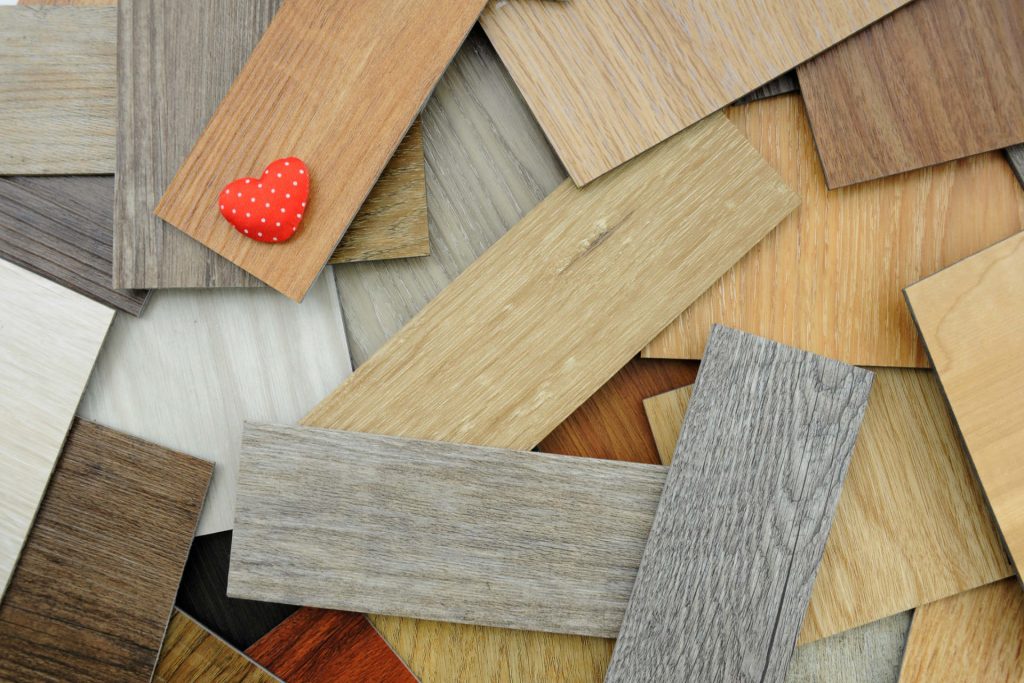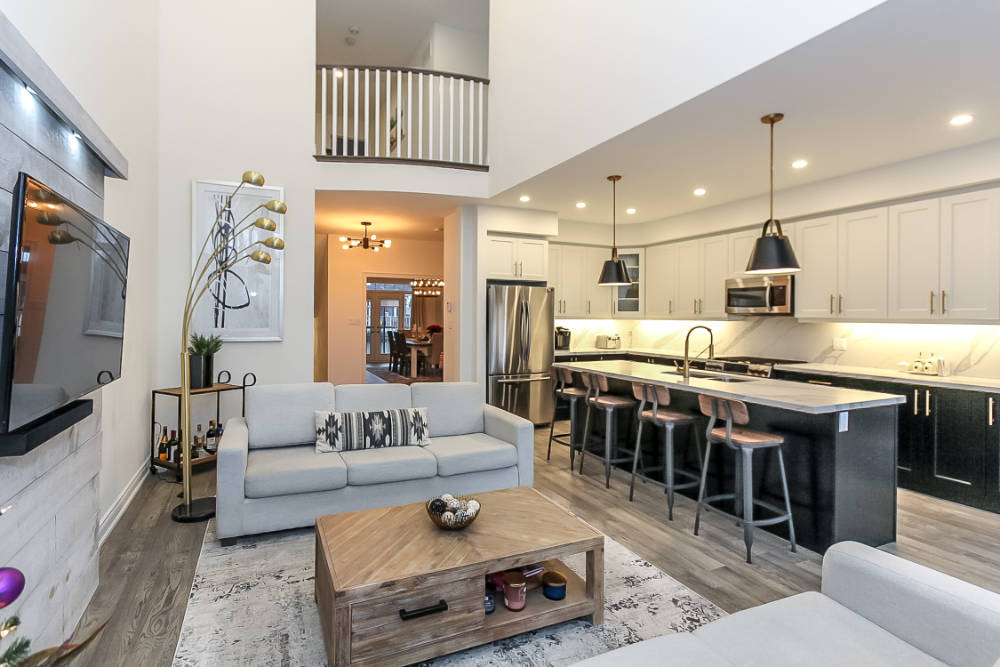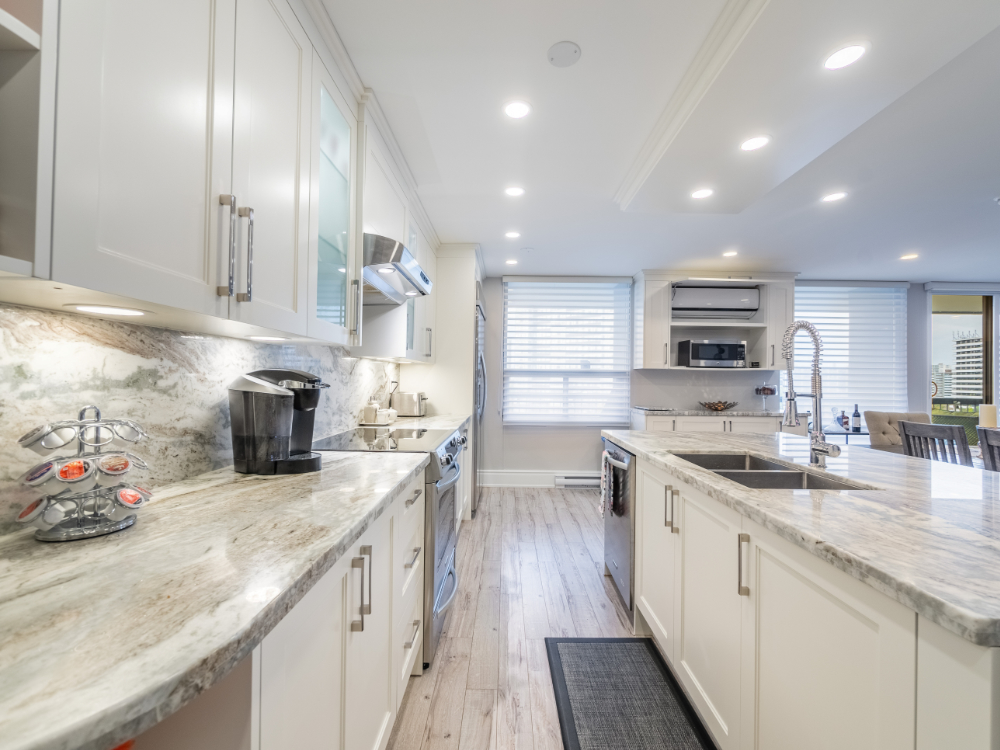One of the first decisions you’ll have to make when updating your home’s interior or doing a major remodel is which flooring to choose. Although solid hardwood, tile, and carpet can be suitable choices in some cases, floating floors have become one of the most popular options in recent years.
There have been incredible improvements in laminate and vinyl flooring quality and design in the last decade. In addition to being beautiful to look at, they are extremely durable and easy to install, making them a very attractive choice for homeowners.
Why choose floating flooring?
For stability, flooring materials are usually attached to the ground. A floating floor is held in place by its own weight and the walls of a room, hence the name “floating”.
Laminate, vinyl, or engineered wood flooring can be used for floating flooring.
Laminate Flooring:
Of the three, laminate is the most common, as it expands and contracts with a change in ambient temperature. You can choose from many designs and colors, including styles that mimic stone and ceramic.
Luxury Vinyl Flooring (LVF):
These vinyl planks snap together with tongues and grooves that hold them together tightly. It is possible to glue some types to the subfloor. Depending on the thickness, you will find some planks to be quite rigid, while others will be quite flexible. Floating flooring is especially popular for waterproof luxury vinyl with cork backing because it is waterproof, water-resistant, and quiet when you walk on it.
Engineered Wood Flooring
Engineered wood flooring has the advantage of being able to be stapled to the sub floor or installed as a floated floor. Be sure to check whether or not a brand can be nailed to the subfloor before purchasing. In engineered wood flooring, the top layer is an attractive decorative veneer glued to a plywood or MDF core.

The benefits of floating flooring
In recent years, the quality of floating flooring has improved dramatically, changing the perception that floating floors are inferior to nail-down flooring. According to the old perception, floating floors don’t add value to you home like hardwood. However the opinion is quickly changing.
The luxury vinyl that is available today is a premium material that does not have a negative affect on the value of your home. It is also important to consider the climate. Real wood flooring is often avoided in places like Florida due to the effects of humidity on the floor.
Due to this factor, ceramic and stone tile became popular choices. In recent years, vinyl has become more popular than ceramic for homeowners due to its fashionable styles and excellent quality.
Here are four reasons why floating floors are so extremely popular…
- The designs are beautiful
As mentioned above, these types of flooring have come a long way in recent years and the designs are just beautiful. - Wide variety of styles
There is seemingly infinite choice of colors widths and designs to choose from. Much more than hardwood flooring. - Durability
You don’t have to worry about that damaging these floors. They are tough. It’s not impossible to damage them but it is rare. - Easy installation and replacement
Floating flooring has the advantage of being easy to install. Both the materials’ weight and the room’s walls keep the materials in place. Since they don’t require nails or staples, they’re easy to install. - DIY installation is an option
Renovation and decorating projects can quickly become expensive. You may be able to save money by doing the installation yourself. Professional installation is a quick and low-cost option if you’re not good at DIY. - Budget friendly
Compared to hardwood and stone, laminate flooring is generally less expensive. You also save more money and installation time with floating floors since they do not require any adhesive or nails.
 Laminate flooring (Above)
Laminate flooring (Above)
What are the disadvantages?
In every renovation project, there are pros and cons to choosing materials. You should weigh the pros and cons of different flooring materials before deciding which is right for you. These are the disadvantages of floating floors:
Acoustics should be taken into account. There may be an amplification of footsteps as you walk across the floating floor because of the space between the subfloor and the floating floor. In a condo building, this can be very irritating not only for you but for your neighbours. To solve this problem, excellent underlays are available. The thickness and quality of the planks can also affect this. Check the ratings of the product before purchasing.
Mold growth is possible under flooring if there is a water leak or damage. Planks can also warp or buckle as a result of this.
Two laminated floor boards may peak when pushed together by pressure, resulting in a high point at the seam. The problem is usually caused by an insufficient space between the flooring and the surrounding walls and moldings as a result of improper installation. A small section of flooring can be removed to relieve pressure from the molding. It will be necessary to replace the molding.
Here’s a quick video about how to install vinyl plank flooring…
What will you choose?
In comparison to glued or nailed flooring systems, floating flooring is designed to stay in position by using its own weight, so gluing or nailing is not required. Compared to traditional flooring, you can easily install it and so materials and installations is cheaper. It’s easy to see why floating floors have become so popular.
Also check out our recent post: Ultimate Lighting Guide to Choosing the Right Home Lighting


 Laminate flooring (Above)
Laminate flooring (Above)